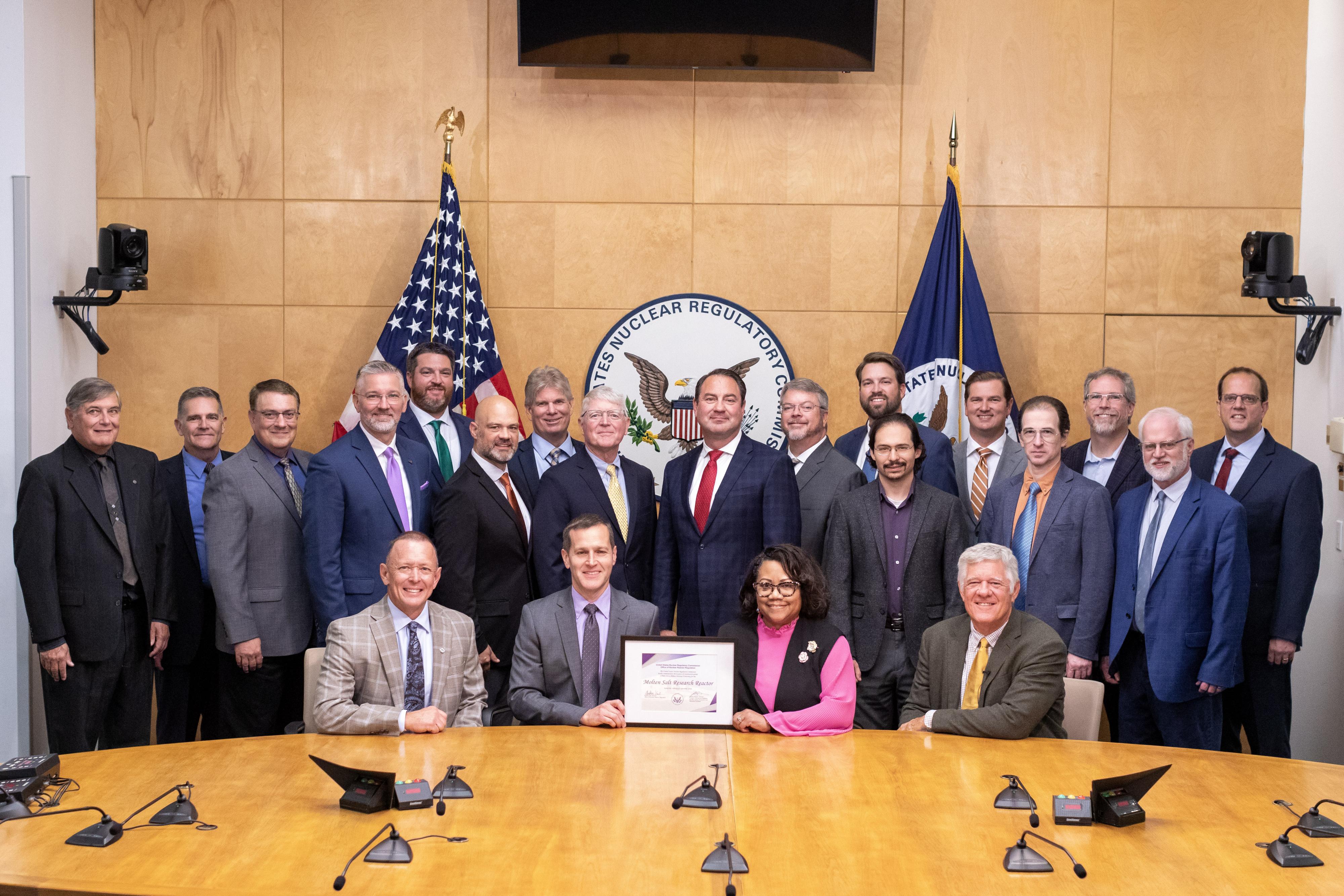
Representatives from Natura Resources, the Zachry Group, Abilene Christian University, The University of Texas at Austin, Texas A&M University, and the Georgia Institute of Technology receive the issued Construction Permit at the Nuclear Regulatory Commission. (Image credit – Natura Resources LLC)
Natura Resources’ Molten Salt Reactor at ACU Receives Historic NRC Construction Permit
Georgia Tech faculty and students play crucial role in the design and licensing of the reactor.
September 16, 2024
The U.S. Nuclear Regulatory Commission (NRC) has issued a construction permit for Natura Resources' MSR-1 system to be built and operated at Abilene Christian University (ACU). This groundbreaking decision marks the first construction permit for a molten fuel-salt advanced reactor.
The Natura Resources Research Alliance, a consortium of four universities, played a crucial role in the design and licensing of this reactor. Georgia Institute of Technology, ACU, Texas A&M University, and The University of Texas at Austin contributed expertise to this innovative project. Sponsored by Natura Resources, LLC, this research reactor is a vital stepping stone towards the deployment of larger 100MWe systems.
Georgia Tech faculty and student researchers contributed to many aspects of the project, including reactor design, radiation shielding, corrosion control, instrumentation, and reactor operations.
Nuclear and Radiological Engineering and Medical Physics Program Chair and Professor Steven Biegalski, lead PI at Georgia Tech, emphasized the significance of this milestone: "The NRC's issuance of a Construction Permit marks a crucial advancement in nuclear energy to meet our nation's and the world's clean energy needs. We're proud of our faculty and students' contributions to progressing nuclear reactor design."
Other faculty members from the Institute who contributed to this groundbreaking project include Woodruff Professor Anna Erickson, Professor Bojan Petrovic, and Preet Singh, professor and associate chair for graduate studies in the School of Materials Science and Engineering. Their collective efforts underscore the importance of academic collaboration in driving forward clean energy solutions and advanced nuclear technologies.
